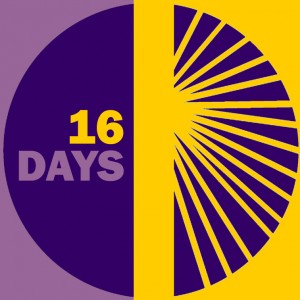
16 days of activism to end violence against women is an eradication campaign which aims to raise awareness about gender-based violence and guarantee women rights. The campaign began in 1991, as an initiative of the Centre for Women’s Global Leadership, and has the support of 150 countries, including Brazil. On 19 November this year, the Brazilian National Congress launched a campaign to tackle violence against women.
To demonstrate our commitment to the cause, we decided to exhibit the movie “In the time of the Butterflies” to our contacts at the British Embassy in Brasília. Several organizations were invited, such as UN Women, SPM, SDH, UNFPA and UNDP. Moreover, DFID launched this year a survey entitled “What works to prevent violence against women and girls” and, worked with UNICEF on the “Girl Summit”, which generated a chart of global responsibility, also signed by Brazil. Furthermore, DFID is working on the four pillars raised by the United Nations Security Council:
- Women’s role in peacebuilding: DFID has an initiative called “Keep it safe”, which continues our call to action, now in collaboration with the US. This initiative seeks to ensure that the international community puts the needs of girls and women at the centre of first phase efforts of all humanitarian responses.
- Prevention of conflicts and violence against women: DFID is working on programs, policies and research to prevent and tackle violence against women. We are implementing £35 million programs, in 17 countries, to eradicate female genital mutilation. Also, we are investing £25 million in a new Violence against Women and Girls Research and Innovation Fund. DFID also works in political engagement to strengthen the regulatory framework in gender-based violence including the work of the United Nations Commission on the Status of Women (CSW) and the ongoing efforts to extend a strong development framework post-2015.
- Protecting women: strategic overview to promote health and women rights, which include methods to delay first pregnancy and support a safe birth; in order to obtain economic goods directly to girls and women; and to keep girls in primary and secondary schools.
- Women as centre on humanitarian aid delivery: DFID is helping with girl and woman political and civil participation. As part of Leadership for Change programme, we are working in partnership with the Women Win and eight local organizations in seven countries in sub-Saharan Africa and Southern Asia. The aim is to build confidence, knowledge and leadership skills through sports programmes to 28,000 girls. These programs are designed to construct self-confidence on girls and change their views about what they can achieve and their aspirations for the future.
However, we can and must do much more. Doing nothing is morally unacceptable and undermines our collective efforts to achieve the Millennium Development Goals. No woman should live in fear of violence; no child should grow up in a home where violence is a daily issue. Work towards this cause takes more than 16 days and, together, we can create a different reality.
